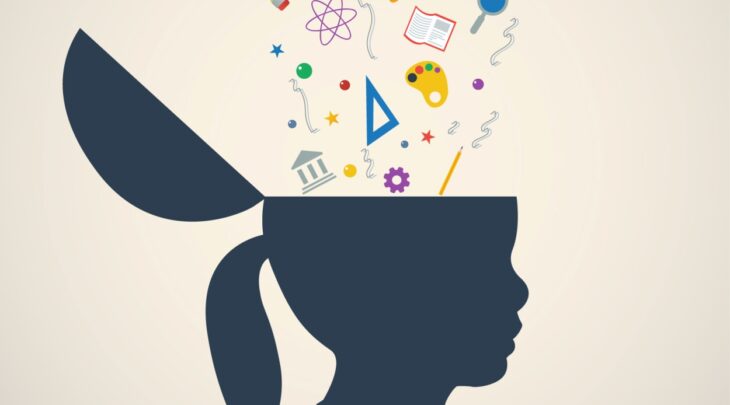Attention is a mental function that helps us notice details of the world around us, concentrate on academic and other tasks, and remember planned activities. Of course, all people can sometimes forget or mix things up. The problem appears if a person is constantly distracted and not focused, it interferes both in studies and in everyday life.
Signs of problems with concentration:
- inability to concentrate on one thing for a long time;
- forgetfulness (you forget about meetings, appointments, homework, do not take the necessary books to school);
- loss of things (wallets, keys, glasses).
Unnecessary mistakes in academic work (knowing the material, you write down wrong numbers, skip important problem conditions, confusing letters in words, perform calculations incorrectly).
As a rule, chronic absent-mindedness necessarily has a cause or several causes. It is enough to find and eliminate them to become more attentive and focused.

Source: microsoft.com
The main causes of inattention and absent-mindedness:
- overwork;
- subconscious unwillingness to perform the task;
- failure of “autopilot”;
- the need to perform too many tasks at the same time;
- attention deficit disorder.
Contents
Overwork
Chronic lack of sleep or great physical and mental stress for a long time often leads to impaired attention. Surely you have noticed: if the lessons sit up with a clear head, there are far fewer blunders and mistakes in the tasks, and in a state of fatigue and drowsiness is sometimes difficult to grasp the terms of the problem. In such cases, often have to turn to PaperHelpWriting, to provide high quality homework in time.

Source: qs.com
How to deal with it:
- Sleep at least 7-8 hours a night, even on the busiest school days. Make restful, healthy sleep a habit: follow your daily routine, go to bed and get up around the same time; if you don’t get enough sleep at night, find an opportunity to sleep for 1-2 hours during the day.
- Spend regular time outdoors. Walking and exercising in the fresh air gives your brain cells more oxygen, resulting in increased activity and performance, improved memory and attention.
- Take pauses in your studies. To avoid overwork during classes, use the 45×15 technique described in Jana Frank’s book “The Muse and the Beast.” After 45 minutes of exercise for 15 minutes, switch to some other activity not related to concentration: household chores, talking on the phone, exercising. Repeat the 45×15 cycle several times – until you have completely completed the tasks planned for today. Resting and switching helps you focus on your mental activity again.
Failure of “autopilot”
We do many everyday things automatically without thinking about it: we close the door of the apartment, turn off the light, the stove, collect textbooks for school. If something distracts us at the moment of committing an automatic action, the program may fail. For this reason, people often lose things, forget to turn off the iron, take the necessary documents with them.

Source: motheropedia.com
How to overcome:
- Do mindfulness meditation at least once a day. The technique of doing the meditation: sit or lie down in a comfortable position and focus on your body, its position, and sensations inside yourself, on the skin, in the muscles. Do not be distracted by any external irritants, do not think about anything else. Duration of the meditation: 5-10 minutes.
- Change the algorithm of habitual actions more often. Walk to school on a different road, change the sequence of morning rituals, put things on the table and the shelves in a different way. When you change your behavioral algorithm, your brain turns off “autopilot” and begins to create new neural connections. This develops intelligence and improves concentration.
Excessive number of tasks
When you have to do several things at once or hold several tasks in your memory, your attention becomes distracted and your concentration decreases. Not surprisingly, one or more tasks may be forgotten and others performed poorly. An overabundance of tasks negatively affects your work or study performance.

Source: Medium.com
How to overcome:
- Choose one task and focus on it. It is important to eliminate distractions as much as possible – remove unnecessary items from your desktop, close unnecessary games and programs on your computer, turn off the sound or notifications on your phone, turn off music, TV, radio, ask not to be distracted and not to disturb your family.
- Dealing with incoming tasks at once, not putting them off for later. If you do new tasks all at once, there is less risk that you will forget something because of the abundance of tasks. This method works best with small academic and household tasks.
Use effective planning techniques:
- Make task lists (they help keep the right things in mind).
- Master the kanban system. Write things and tasks on colored cards and place them on a special board under the columns “Must Do,” “Doing,” and “Done.” As you complete the tasks, move the cards to the appropriate column. This way you can always monitor the process and adjust the sequence of actions.
- Use visual cues. Put notes reminding you of important tasks on your computer keyboard or hang them in a prominent place above your desk, put something on your desk – a pen, a pencil, a book – that will immediately remind you of the planned task.

Source: seasonsmedical.com
Attention Deficit Disorder
Attention Deficit Disorder occurs in people of all ages. With this syndrome, it is difficult for a person to concentrate on the same task for a long time. Exercises to improve concentration will help to cope with the problem. You should do them regularly – at least once a day for 2-3 weeks.
Examples of exercises:
- Fingertip staring. Sit with a straight back on a chair or chair, straighten your shoulders. Raise your right hand to the shoulder level and move it aside, turn your head and focus your gaze on the fingers of your right hand. Keep your eyes on the fingers for 1 minute, then repeat with the left hand.
- Straight line. Draw a straight line with the pen on the paper, keeping your attention only on this action. As soon as you notice that your attention has dissipated, draw a small jag on the line and continue. The fewer jagged lines you get, the higher your level of concentration. Try not to get distracted and stay in your mind for at least 2-3 minutes.
- Second Hand. Place the watch with the second hand in front of you and without taking your eyes off the watch. Keep your attention on the hand for 5 minutes without being distracted or absorbed in your thoughts.
